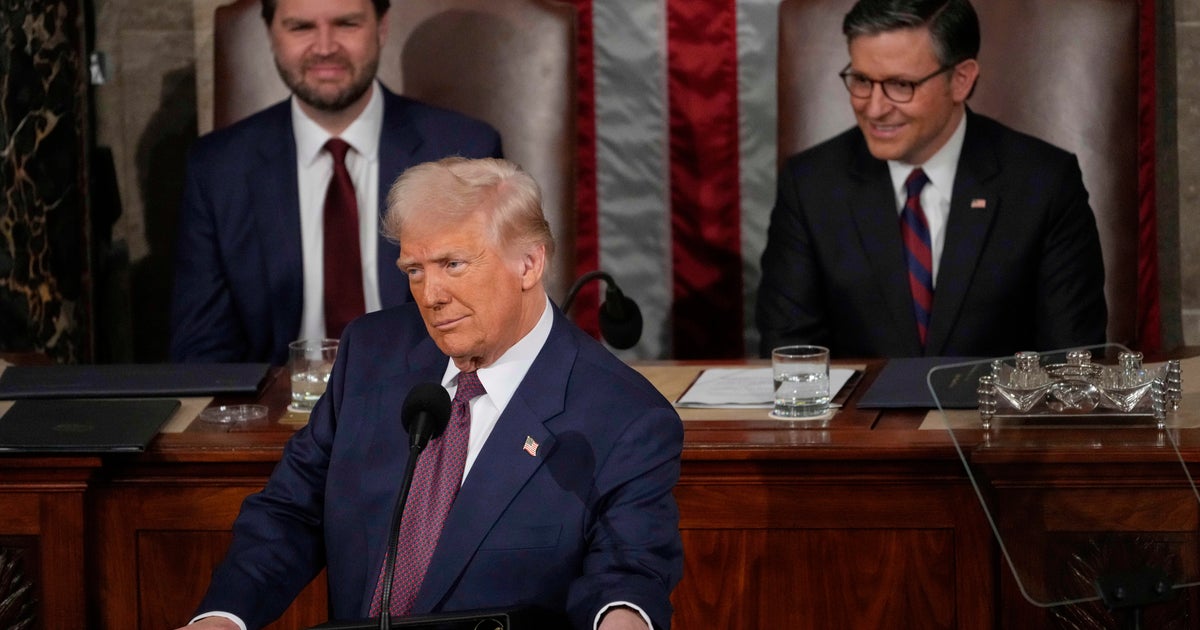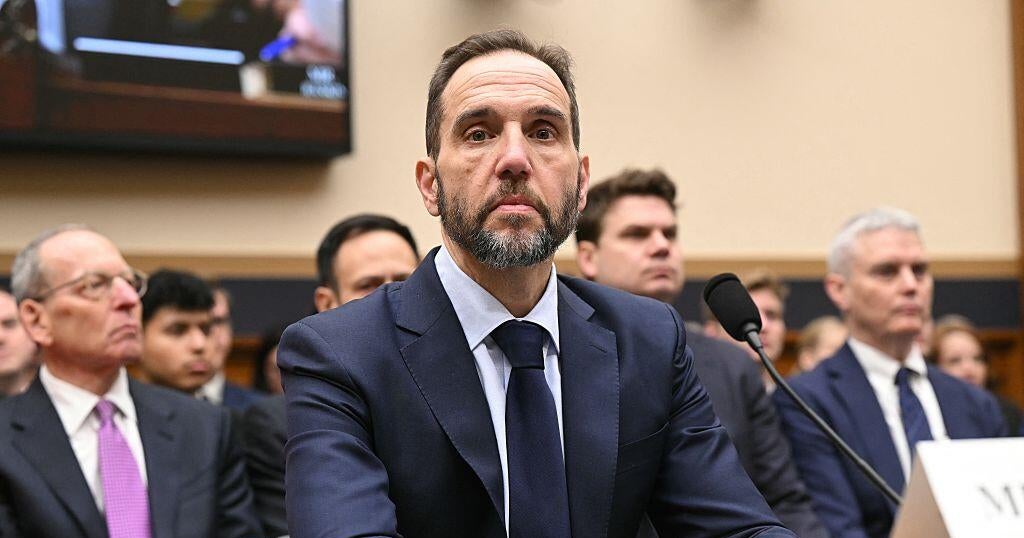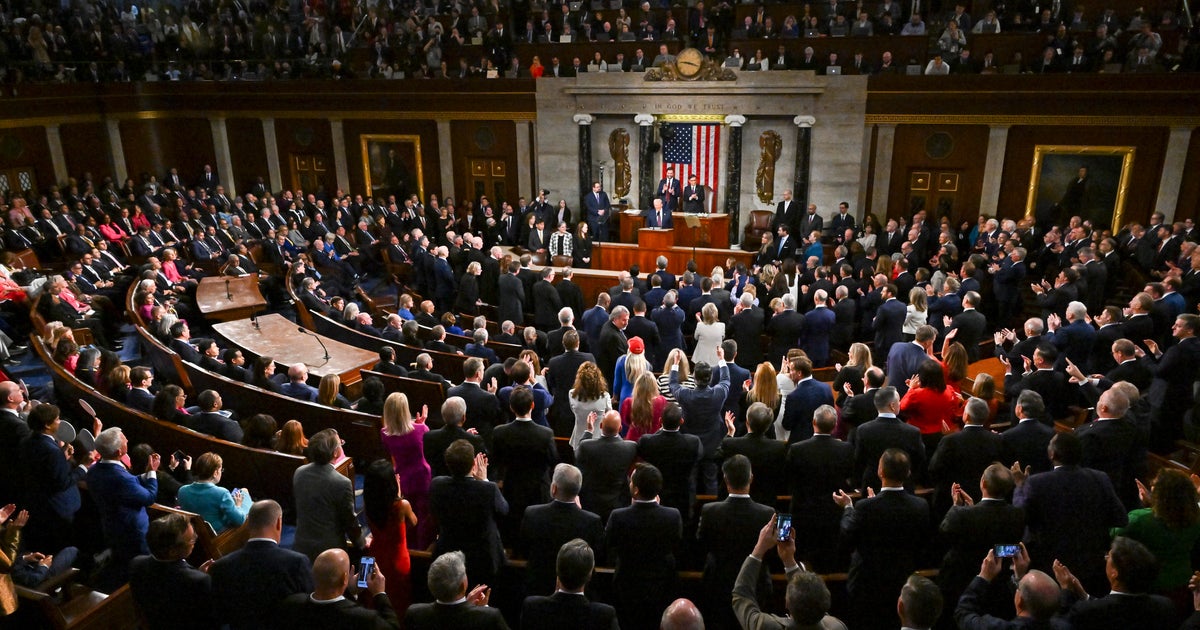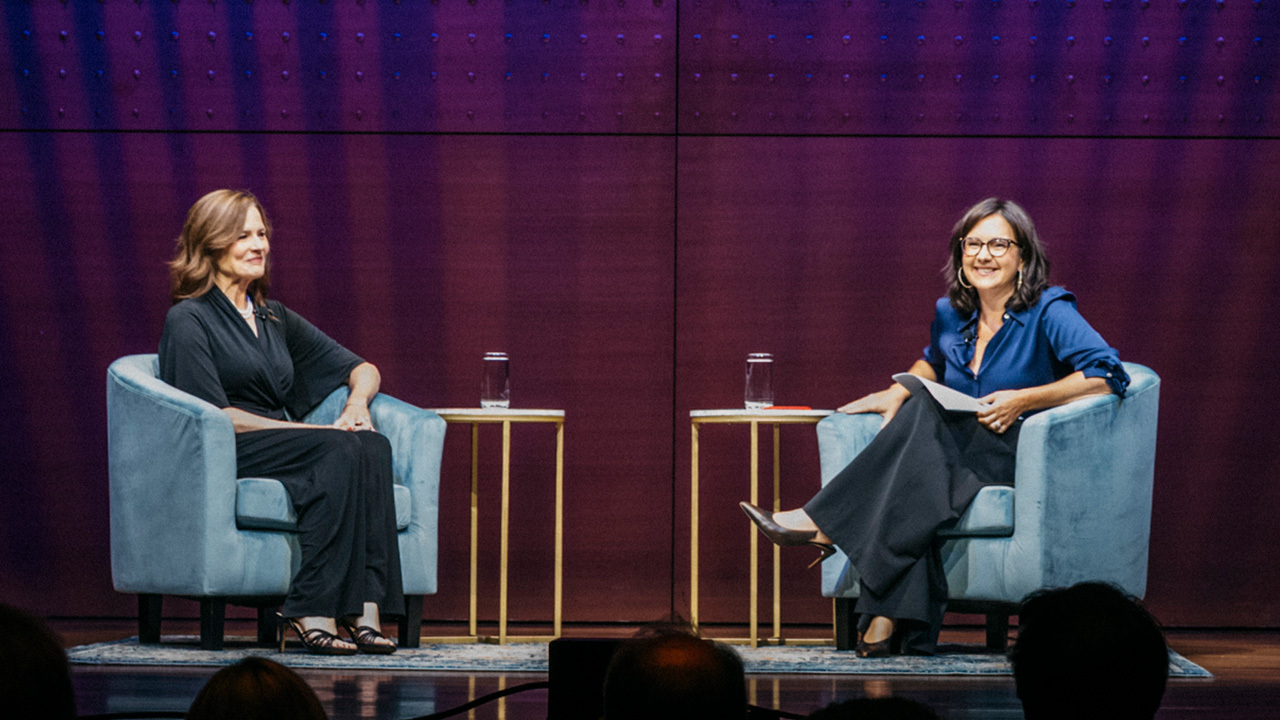What to watch for at Amy Coney Barrett's confirmation hearings
Washington — The Senate Judiciary Committee is set to convene Monday for the first day of confirmation hearings for Judge Amy Coney Barrett, President Trump's nominee to the Supreme Court, in what is expected to be a fiercely partisan battle over the future of the high court.
Expected to last four days, Monday's hearing will feature opening statements from the panel's 22 members, as well as introductions of Barrett by Indiana Senators Todd Young and Mike Braun, and Patricia O'Hara, the former dean of Notre Dame Law School.
Mr. Trump nominated Barrett, a judge on the 7th U.S. Circuit Court of Appeals, to succeed the late Justice Ruth Bader Ginsburg on the Supreme Court last month. If Barrett, 48, is confirmed, she will be Mr. Trump's third appointment, and her addition to the nation's highest court will expand its conservative majority to 6-3.
The Republican-controlled Senate is charging ahead with Barrett's confirmation at a pace that is uncharacteristic of the upper chamber, as they and Mr. Trump want her confirmed before the general election on November 3. But Democrats are casting Barrett's nomination as illegitimate, citing the proximity to Election Day.
In addition to the short timeline, the recent COVID-19 diagnoses from three Republican senators, two of whom serve on the Judiciary Committee, has further roiled the confirmation process. Senate Majority Leader Mitch McConnell canceled legislative activity until October 19 after Senators Mike Lee, Thom Tillis and Ron Johnson tested positive for the coronavirus, but this week's hearings are proceeding as planned, with members having the opportunity to participate remotely.
Still, Republicans hope to hold a final vote to confirm Barrett in the last week of October.
Here is what to expect for Barrett's confirmation hearings:
The senators to watch
There are 22 members on the Judiciary Committee — 12 Republicans and 10 Democrats — and each will have their chance to question Barrett directly later in the week.
Some members of the committee are in tough reelection fights: Chairman Lindsey Graham of South Carolina, and Republicans Joni Ernst of Iowa and Tillis of North Carolina.
Eyes will also be on Senator Kamala Harris of California, the Democratic vice presidential nominee. A former prosecutor, Harris garnered attention for her questioning of Justice Brett Kavanaugh during his contentious confirmation hearings in 2018.
She is expected to participate in the hearings remotely from her Senate office, her office said, citing "Judiciary Committee Republicans' refusal to take commonsense steps to protect members, aides, Capitol complex workers and members of the media."
COVID-19 and the confirmation process
Mr. Trump nominated Barrett to the Supreme Court in a ceremony in the White House Rose Garden where there was limited social distancing and few wore masks. Dr. Anthony Fauci, the nation's leading infectious diseases expert, described the ceremony to CBS News as a "super-spreader event" because so many of the attendees, including the president and first lady Melania Trump, soon tested positive for COVID-19.
Lee, of Utah, and Tillis both tested positive for the virus after attending the White House event, and it's unclear whether they will participate in the hearings in person or remotely.
Graham, who leads the committee, publicly refused to take a COVID-19 test when challenged by his Democratic opponent last week to do so.
The hearings will be a venue for Democrats to air their criticisms of Republicans' response to the pandemic, as well as to gauge how the senators — and Barrett — react to the public safety threat. Barrett contracted the virus and recovered from it over the summer, according to The Washington Post. The White House said on October 2 she tested negative after the September 26 event.
What to expect from Democrats
Although Barrett is expected to garner support from most, if not all, 53 Republican senators, most Democrats will likely oppose her confirmation. Barrett has only been on the federal bench for three years, but she has conservative bona fides and credits the late Justice Antonin Scalia with shaping her judicial philosophy.
Democrats, meanwhile, are concerned that she would rule to kill the Affordable Care Act, chip away at abortion rights and expand the scope of the Second Amendment.
Senator Dianne Feinstein of California, the ranking member of the committee, has been criticized for questioning Barrett's Catholic faith during the 2017 confirmation hearings for Barrett's nomination to the federal appeals court on which she currently serves. If Feinstein or any other Democrats ask questions about how Barrett's faith influences her decision-making on critical issues like abortion, Republicans may take the opportunity to paint them as being anti-Catholic.
Democrats are also fuming that the confirmation process is happening so close to Election Day, four years after Republicans blocked the confirmation of Judge Merrick Garland to the Supreme Court because it was an election year. Democrats are expected to question Barrett about her judicial record, but they also may use their time to excoriate their Republican colleagues for choosing to hold the hearings now.
While Democrats have few procedural tools at their disposal to block Barrett's nomination, Senate Minority Leader Chuck Schumer on Sunday vowed to deny Republicans the quorum needed for a vote by the Judiciary Committee and on the Senate floor.
Democrats are also mounting a fight over materials they claim are missing from her questionnaire submitted to the committee.
The issues will Barrett will be questioned on
Senate Democrats have made the future of Obamacare a focal point of their opposition to Barrett's nomination, especially since the Supreme Court is set to hear a challenge to the Obama-era healthcare law November 10, just seven day after the election.
To bolster their case against Barrett, Democrats cite an essay she wrote in 2017, in which Barrett was critical of Chief Justice John Roberts' majority opinion in the blockbuster 2012 Supreme Court case upholding Obamacare's individual mandate.
Barrett wrote Roberts "pushed the Affordable Care Act beyond its plausible meaning to save the statute." His decision, she continued, "might be explained by the fact that Chief Justice Roberts has not proven himself to be a textualist in matters of statutory interpretation," unlike Scalia, a staunch textualist and originalist.
But the dispute before the justices this term raises different issues than the 2012 legal challenge to Obamacare, making it more difficult to discern how Barrett may rule.
So far, at least one Democrat on the committee, Senator Chris Coons of Delaware, has committed to asking Barrett about Obamacare.
In addition to the Affordable Care Act, Barrett will likely be pressed about Roe v. Wade, the 1973 Supreme Court decision that established a woman's right to an abortion.
In the two abortion cases she was involved in during her tenure on the 7th Circuit, she joined the dissent in ruling to deny requests for the the full appeals court to rehear disputes.
In 2018, when the 7th Circuit weighed whether the full court should rehear a case involving a challenge to an Indiana abortion law that requires fetal remains to be cremated or buried after an abortion, Barrett joined a dissent from the denial of rehearing en banc authored by Judge Frank Easterbrook. In his dissent, Easterbrook took issue with a panel decision striking down a different statute that prohibits abortion based on sex, race or disability.
Then, in 2019, Barrett joined a dissent from the denial of rehearing of a challenge to an Indiana law that would have required doctors to notify the parents of a minor seeking an abortion. A three-judge panel found the law was unconstitutional.
Barrett has written that abortion is "always amoral," and in 2006, she signed on to an anti-abortion newspaper advertisement that opposed "abortion on demand." In 2013, Barrett's name also appeared in an advertisement sponsored by the group "University Faculty for Life," which said "we affirm our full support for our university's commitment to the right to life."
But as a nominee to the 7th Circuit, Barrett told the Judiciary Committee she would "follow all Supreme Court precedent without fail" and during a speech at Notre Dame in 2013 said it's "very unlikely" the high court would overturn Roe, according to the student newspaper The Observer.
To get a broader understanding of Barrett's views on abortion, Democrats will likely ask whether she believes Roe and Planned Parenthood v. Casey, a major abortion case from 1992, were rightly decided, as well as for her views on stare decisis, the legal principle that says courts must follow precedent.
But it's unlikely Barrett will divulge her views on abortion or those cases, as nominees typically avoid weighing in on issues that may come before them as a jurist.
The election
Garland's failed confirmation in 2016 is providing the backdrop for Barrett's nomination fight. While Democrats say voters should have a voice in choosing the president who fills Ginsburg's seat, Republicans argue this vacancy is different from the fight in 2016, as the same party controls the Senate and the White House.
But also casting a shadow over Barrett's confirmation hearing are possible legal showdowns stemming from the November election, as Mr. Trump has predicted the outcome of the presidential race could be decided by the Supreme Court.
That prospect has been the backbone of the president's insistence on the Senate confirming Barrett before Election Day.
Senate Democrats will likely push Barrett to commit to recusing herself from any election-related disputes that come before the high court. But it's unlikely she will do so, as each individual justice decides whether to sit out a case.



